THIS POST HAS SPOILERS FOR DRAGON’S TRAIL.
This is a topic that has come up a few times. And frankly, I’ve been nervous to discuss it, since it’s a touchy subject.
However, now that The New Magic is going through developmental editing, I was going over deleted scenes and I realized how much expository backstory I took out of these books, and I think it’s time we finally sat down and had The Talk.
Today, I want to talk about sex. And worldbuilding.
Dragon’s Trail has been called “sexist” or “male daydream fantasy” by some readers–and it is, but not in the way you might expect. Let’s be clear: I make no bones about the fact that Dragon’s Trail is a violent, boob-filled swashbuckler. Enjoy.
However, Dragon’s Trail is the first act in a very long series. Women play pivotal roles in both the series and in the society I built, as you’ll see in The New Magic. The reason you don’t see it in Dragon’s Trail is because Jarrod Torrealday doesn’t see it, nor understand it yet.
There are two women in The New Magic who are very likely going to get their own spinoffs later: Commander Daorah, from Dragon’s Trail, and Knight Lieutenant Aever, who’s new. I’ve sketched out a possible series for each of them. I have a plot hammered out for Aever’s first book already, and I have half a dozen pages of backstory on Daorah that I just couldn’t work into either of these, so far. It just doesn’t fit.
This is getting off the topic of sex, and I promise I’ll get back there in a minute. One reason I leave that kind of backstory out and opt for spinoffs later when an interesting character comes along is that I didn’t want to inflict another thousand-page doorstop epic fantasy on the world, detailing every single character’s journey from birth and having them eventually come together for an adventure 800 pages later. I keep the camera tight on the hero. Other characters come in and out of his life, the way that characters come in and out of yours. There will be more on these interesting side characters in later books, and there are many more of them to come. You’re welcome.
So, sex.
Dragon’s Trail introduces Jarrod Torrealday as a womanizing, bed-hopping rake, and there are a few reasons for this.
First off, Jarrod was not originally my hero. He was my villain. He’s badly flawed; he’s an anti-hero. James Bond. Martin Riggs. Bill Django. Deadpool.
Fun fact: Ulo Sabbaghian, the King of Ulorak and the villain in Dragon’s Trail, was the original hero. The original story was about Ulo as a young man, ending up in another world where he finds out that he’s a Lost Prince, and his father was a sorcerer-king, and magic is in his blood, and then he wins back his father’s kingdom and goes on to “come of age in a land of magic and wonder.”
I still have an early copy of this manuscript, a steaming pile of juvenile bullshit called Of Memory and Empire–really, it sucks so bad; it even has an elf and dwarf in it who hate each other at the beginning and then become friends by the end–and I’ll eventually rework it as a prequel (minus those two characters), laying out Ulo’s origin story.
On the plus side, it turns out that this trope is so hoary that I could tell Ulo’s entire backstory in about two paragraphs in Dragon’s Trail, trusting readers to nod and say, “Ah, yes, Fantasy Plot #2: Boy Finds Out He’s a Lost Prince. Got it.” (Someone I work with literally said this, BTW.)

A riveting tale of a scrawny twelve-year-old loner leading an army against the Forces of Ev– Well, shit.
But Jarrod is flawed. He was the villain in Ulo’s story arc, brought in by a neighboring kingdom to kill him. The flaws that make him the kind of person who would take that gig are what make him so much fun to write. He’s an alcoholic, cynical, broken man with nothing left to lose. He’s a much more interesting character than Ulo, and I realized that the story I was trying to tell, here, was about Jarrod’s redemption, not Ulo’s adventures.
Jarrod finds himself in his own world of wonder in Dragon’s Trail; specifically, a world where sex is more or less on par with going to the gym. Fertility rates are low; one of the broader societal impacts that came about during worldbuilding when I set the story on a world with a 104-day lunar cycle. The lunar cycle affects everything–the tides, the crops, and, yes, the fertility cycles–and the nights are long and cold.
(Still waiting for ten thousand fantasy authors to explain why their worlds have 28-day months, by the way; to say nothing of explaining what “twenty years old” means, or what a “week” is. Does your planet share the same orbital period as Earth, with the exact same lunar mechanics, and if so, how the hell did that happen? I mean, what are the odds?)
With this low birth rate, the people in this magical land where The Outworlders series takes place have adopted the art of giving each other orgasms as what amounts to a competitive sport. There is not much else to do, and there is literally no downside. I saw no reason to introduce venereal diseases; there’s no population problem. In fact, they have the opposite problem, and the world needs them attempting to reproduce at every opportunity if they’re going to survive. If a woman gets pregnant outside of marriage, it’s not an “accident”; everyone is ecstatic, because, goddamn, good for her.
Socially, this gets interesting really fast. It’s not unusual for a child to have several men in the father role, if for no other reason than the fact that it might not be clear who the father is–because women sleep with anyone they want to, and everyone’s cool with it–and children are so rare and precious that everyone wants in on raising a child.
As a corollary to this, sex in their world is so common and given so freely that they can’t conceive of it bestowing some sort of exclusivity. I explain this in Dragon’s Trail, but it seems to have been glossed over. Nobody cares whom you’re having sex with in the world where my series takes place. Sex is not a big deal. It’s fun, and healthy, and a great way to spend an afternoon. In those last respects, yes, it’s pretty much just like here.
They can’t even conceive of being jealous about sex. It would be the equivalent on Earth of feeling jealous over someone else’s gym partner or running buddy. (That part, sadly, is not like Earth. It’s a fantasy; some components are idyllic.)
In Dragon’s Trail, Jarrod is taking advantage of all this readily available sex like a kid in a candy store because, again, he’s an antihero. You’re not supposed to like him at the beginning of all this. He’s an asshole. He has sex like an asshole. That’s part of Dragon’s Trail. It’s part of his development arc, which has at its core a redemption story. It’s just that the redemption arc is five goddamned books long, so it’s going to take a while. I’m not going to redeem him right out of the gate and then play intermission music for the rest of the series.
The local social attitude toward sex has a number of repercussions for me as an author, however. Since sexual intimacy is distinct from emotional commitment in Falconsrealm, I needed to find other ways to develop emotional bonds between the men and women. (And men and men, and women and women; like I said, they don’t care who has sex with whom.) This was harder than I thought it would be.
Sex is confusing and touchy and a huge deal to us in First-World 21st-Century Earth. I threw that out the window. The world I built is not Earth. It’s not intended to be. It’s intended to be metaphorical, and to create a set of unreachable circumstances and explore them using the contingencies of the rhetoric.
To this end, in The New Magic, you’ll see emotional bonds forming between characters outside of sex. This is also part of Jarrod’s character growth through the series. Sex, to them, does not have a strong emotional component, so–believe it or not–I have to take a much more mature look at relationships.
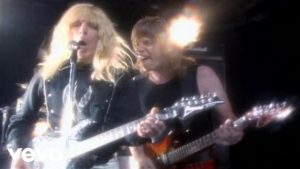
“Our song Sex Farm, for instance, takes the idea of sex, and–” “Puts it on a farm.” “–on a farm. Exactly.”
Key to this, though, is developing life partners outside of sexual partners. Dragon’s Trail, with its sex-positive culture, is the first part of establishing this. I needed to lay the groundwork, and I needed to throw some things into relief between their world and ours.
The second and most startling repercussion of their attitude toward sex is that in Gateskeep and Falconsrealm, rape is not really a thing.
Stick with me on this.
Rape is not about sex. I get that. Rape is about power, not sex. Got it. The prevalence of easy sex in their world would not preclude people from becoming rapists . . . if they were people from modern-day Western civilization. But they’re not, and I had to carry the local sex-positive mindset to its logical conclusion: if sex does not imply any sort of ownership or involve any sort of power, or even carry a significant emotional impact, then the power structure that makes rape a patriarchal tool goes away.
Think about that. I’ll wait.
How much of rape culture in our world is wrapped up in bro culture and horseshit machismo and vindictive thoughts from unlikable twits who can’t woo a woman, so they fantasize about forcing one? Or they use their position of power to coerce women into doing what they otherwise wouldn’t? The Harvey Weinsteins of the world. Those guys.
In the world where my books take place, men who commit rape are considered aberrant; the act itself is on par with bestiality or harming small animals. It’s regarded as a psychosis, which is one of the idealistic aspects of their society (hey; my world, my rules). Where’s the fun in forcing someone to go for a run with you? What kind of sicko would do that?
This is why, in Dragon’s Trail, MOUSE OVER FOR SPOILERS no one came after Jarrod for taking Edwin away. He was aberrant. We talk at the beginning about how he forces women into his bed at swordpoint, and he keeps a sex slave. If he hadn’t been massively rich and the brother of the heir presumptive, nobody would likely have put up with it. In the storage room scene in Dragon’s Trail, Daelle wasn’t being raped; they were beating her up, and Gar’s guys were going to cut pieces off of her if Jarrod didn’t talk. Read it again. It’s in there. Later, Ulo kidnaps Princess Adielle, but he doesn’t rape her. He’s not interested; it wouldn’t mean anything to her, it wouldn’t prove anything, and it would just make Gateskeep madder. Besides, he has a woman on one of his body parts almost every time we see him. He’s a king.
The New Magic, the forthcoming sequel to Dragon’s Trail, is another violent, swashbuckling fantasy novel with plenty of boobs and a male protagonist, but there are no rape scenes and not even the threat of rape mentioned, not once. Further, none of the badass female characters became strong as a result of sexual violence, or by overcoming an abusive past. That trope sucks; it’s lazy writing, it’s dismissive, and I won’t use it.
Let me say that again, in case you missed it, because I stand by this: rape is lazy writing.
A society without sexual violence is also intended to contrast the opening to Dragon’s Trail, which has Jarrod kicking the crap out of a man for raping a woman. He’s in a different world, now. Maybe I didn’t make it clear enough that it’s a different world; I hope I did, though. I mean, it’s the point of the book.
There’s also a whole thing that I thought I made clear but I guess I didn’t about how, in a world made of monsters, you can’t afford to marginalize half your population. You need all hands on deck.
I originally explained a lot of the sexual dymanics in drafts of Dragon’s Trail, but it seemed preachy and awkward, so I took it out. I touched on this in a long conversation scene in The New Magic, but it turned into an “as you know, Bob,” scene, so I took it out, too. I almost included the scene in this post, but early drafts are drafts for a reason, so, no.
TL;DR: it’s a sex-positive, rape-free culture. Yes, it’s a fantasy world. Yes, in Dragon’s Trail, Jarrod is a sexist character in a world that he doesn’t remotely understand. He comprehends the new world around him through the lens of his experiences, because that’s how we do things as human beings, and he gets it wrong. Which we also do as human beings.
Part of me looks at the sexual aspect of my social worldbuilding and wants to say, “What a profound statement you’ve made here, Joseph.” And part of me looks at this and shakes its head, wondering how we can make this happen, here.
Sex is awesome. Swords are awesome. There’s another book with a lot of both coming. Enjoy.

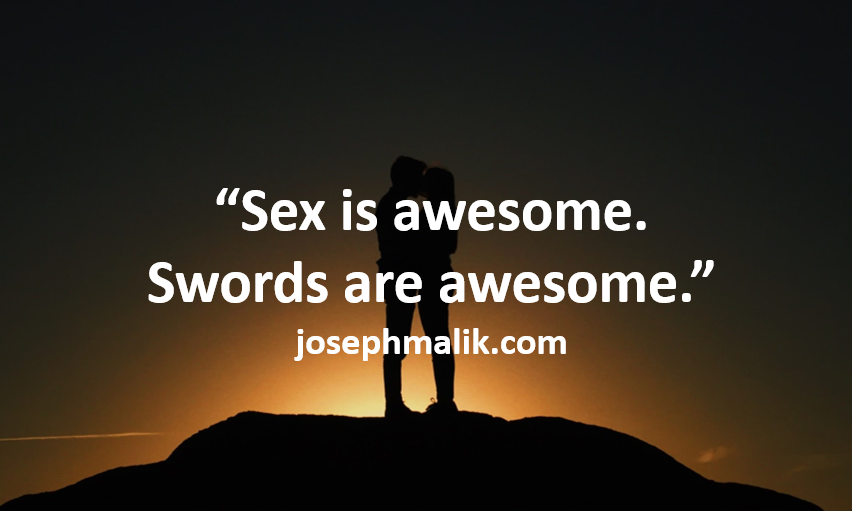
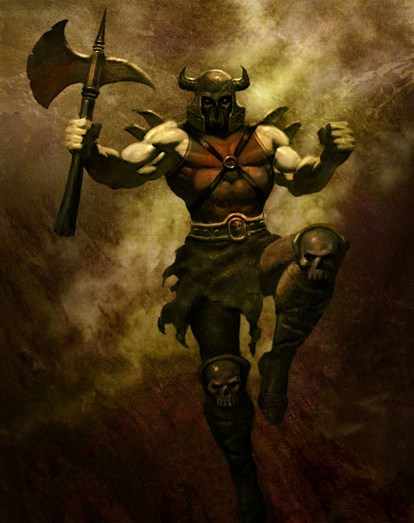

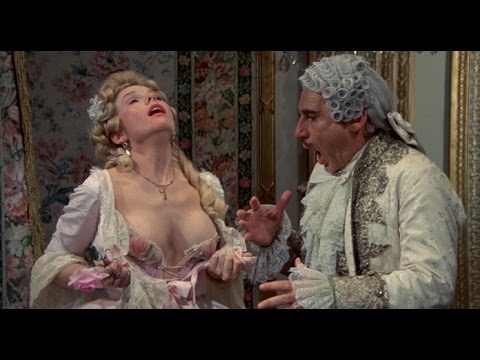
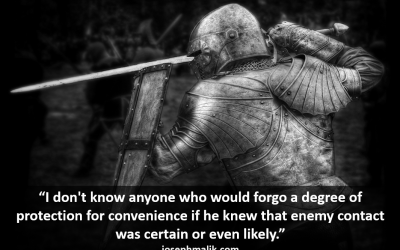
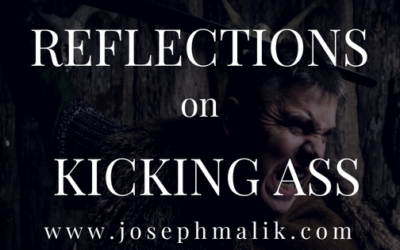
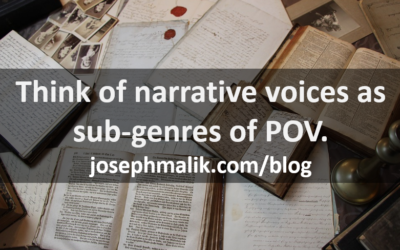
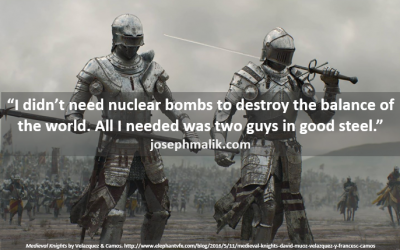
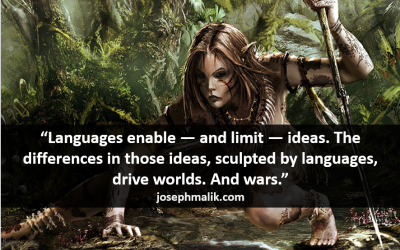
We have a world like this on earth for animals. Just not humans.
Hmm… this is quite interesting. I am not the person to debate this, but my understanding is that it’s largely agreed upon that power dynamics is only one of several reasons why men are driven to rape.
If that’s the case – and again, I’m not qualified enough to confirm – then rape would still exist in Falconsrealm unless you include in your world building other – specifically genetic – differences between the people there and us Earth humans.
Food for thought. Totally agree about the trope of powerful woman as a result of sexual assault being lazy writing. Cheers.
There can be no rape in this world?
Hmmm. Nope.
Maybe I’m too …stuck…in my world, but that approaches rape as an intellectual experience –when it’s a very very very emotional and spiritual one.
Rape is the attempted murder of the human soul.
And I do not expect anyone who has not been sexually assaulted to understand this. But that is what it is.
To have your autonomy stripped away so completely, to have a part of you that should be shared only in a intimate connection instead violated–I would think that would be MORE of a shock to a woman raised in the culture you describe. She might not have the traditional patriarchal reaction (feeling responsible/contaminated/broken) or it might be worse because this should not have happened to her. She would most likely be far more vengeful toward her assailant than a woman in our culture. But rape of either a man or woman is always POSSIBLE if someone is vile enough.
Does that make sense?